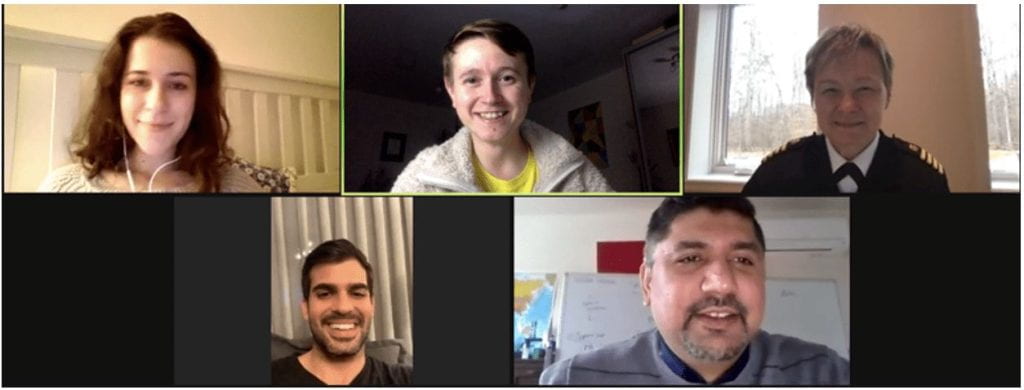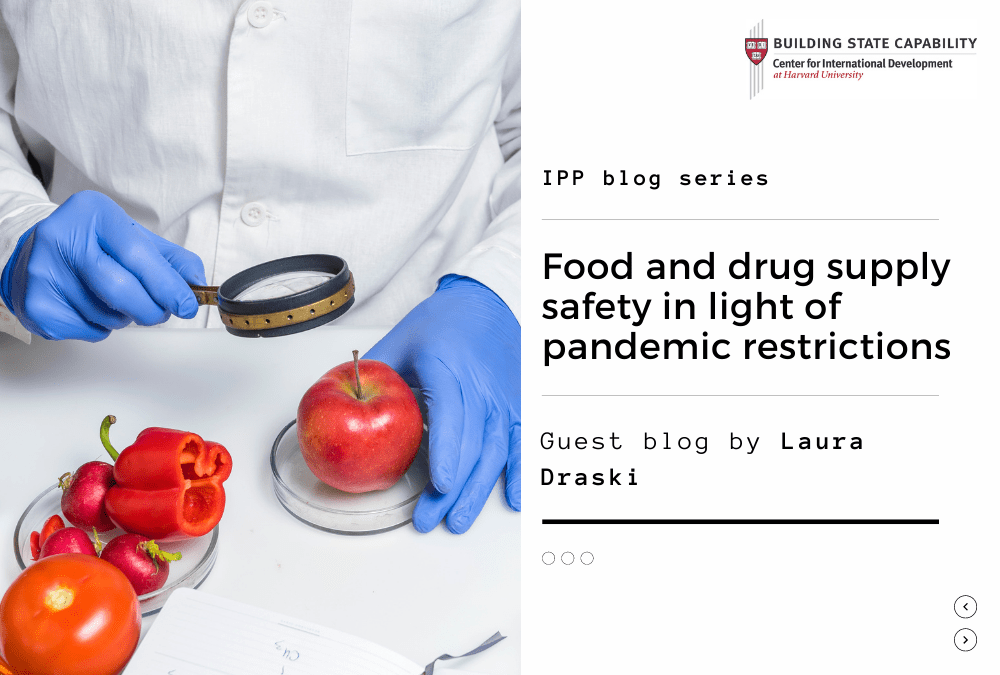Guest blog by Laura Draski
When I first applied to be part of the Implementing Public Policy cohort, I expected to learn much about various techniques, tools and theories used in implementing policy. About the nuts and bolts of how to design and create policy that can be implemented. About how to manage a process of complex and intersecting implementation. I would graduate with a toolkit to pull out of my belt and a formula complete with a calculator to plug in my variables and expected outcomes of measured success. Indeed, the Harvard Kennedy School Playbook for Implementing Policy.
And I did learn tangible tools and some phenomenal ideologies and guiding principles. Problem Driven Iterative Adaptation (PDIA) is now part of how I see and respond to the world. I talk about teaming, snowflake models and trust triangles as if they’re a normal part of dinner conversation. I pride myself in being able to construct a mean and comprehensive Fishbone Diagram. And, truly, these are all helpful skills and knowledge to draw upon when considering complex policy problems.
But what I didn’t expect to learn in this course was about leadership and how much your own leadership skills can influence not only a successful policy outcome, but the leadership ability and success of others. About the importance of building relationships (and it’s all about the relationships), and about learning from and influencing others. I was struck by the model of multi-agent leadership where risk is shared and where true leaders acknowledge that complex problems can only be solved when you mobilize and provide opportunity for others to exert their leadership.
And then came Week 9 and the 4P model of strategic leadership. Gamechanger. The idea of leadership as a purpose versus as a position resonated with me. I’ve taken the 4Ps to heart – perception, process, people, and projection – and literally revisit and reground myself with them on a weekly basis. It has become a driving force for me that has led to the development of many strong and necessary relationships and partnerships that have been invaluable during my policy implementation challenge.
Like many, when the COVID-19 pandemic was declared, aspects of my life and job were changed dramatically. In addition to working at the US Food and Drug Administration, I’m also an active duty officer in the US Public Health Service (the part of the uniformed services that falls under the US Surgeon General). On the week that our first class was set to begin, I was called up and deployed for eight weeks in support of our country’s public health response to COVID-19. That alone made working on my policy problem and participating in this class quite challenging! But the problem I was helping to tackle could not wait since it questioned how to keep our food and drug supply safe when COVID-19 quarantines and restrictions interfered with my agency’s ability to perform onsite inspections of facilities.
As I learned about the iterative process of action learning, it seemed a perfect approach to use. Afterall, the pandemic response environment itself was and is iterative on a number of scientific and political levels. With limiations on our ability to conduct non-mission critical onsite inspections, we began by exploring ways we could conduct remote audits or assessments that would bolster our confidence that a firm’s products were in compliance with safety and/or efficacy requirements as a way to supplement our onsite presence. An initial team was assembled that included assorted subject matter experts from multiple districts and offices across the country with a multi-agent leadership model in mind. From conversations regarding potential pathways and obstacles that were discussed, I created a Fishbone Diagram that captured the problem deconstruction and potential entry points.
We made tremendous progress considering and implementing measures that would give us a higher level of confidence that a firm was in compliance with FDA regulations. We considered and developed legislative changes that would give the FDA more authority to use virtual and remote methods to ensure compliance. We also have developed draft procedures and have worked with industry to voluntarily allow us to use the methods until new regulations are in place.
Using the lessons learned in this class, I’ve accumulated many observations and adjustments along the way. One of the things I wanted to do was to bring people from different areas but with a common goal and push them to move towards and evolving solution. In this manner, the “teaming” approach has been effective in this environment, with team members sharing a common “itch” to protect public health and to respect and recognize the leadership contributions of other team members. On the contrary, I think our approach is still too reactionary. I believe we have an opportunity to be more strategic for our organization as a whole and build a process that we would continue using in a post-pandemic world that is modernized and provides greater efficiency. And, the scope of the project has spawned many additional work groups that are looking at aspects or different entry points of the same problem, but the different efforts currently lack a coordinating focal point.
And then there are the things that I’ve learned about myself in this course! For example, at times I’ve been a notoriously bad delegator. But, Scott Stein’s message on delegating, akin to teaching someone how to fish, was so eye-opening to me. If you are going to do the work anyway, why not map out the solution with the person that could be delegated the duty and then check in with them on the progress? I also have focused on “learning and leads” as key indications of progress and worthy items to convey. In the past, I have mostly focused on the progress made with the policy or policy challenge and haven’t taken the opportunity to simultaneously document my own personal progress, growth, or learning – let alone brief these out as progress to my authorizer or supervisor.
And, lastly, there is the class itself, the instructors, and your IPP group. I have never been so much in awe of the absolute potential of a group of people! My IPP Group (16) have been wonderful, supportive, and fascinating colleagues for whom I have much success.

To all my classmates and to others who may take this course in the future – be prepared to not only learn some nifty tools and techniques for how to implement policy! Be prepared to change your thought process, make mistakes, learn from them, share the experience with others, and lean on your new network of colleagues. It is the sound of joy.
This is a blog series written by the alumni of the Implementing Public Policy Executive Education Program at the Harvard Kennedy School. Participants successfully completed this 6-month online learning course in December 2020. These are their learning journey stories.
